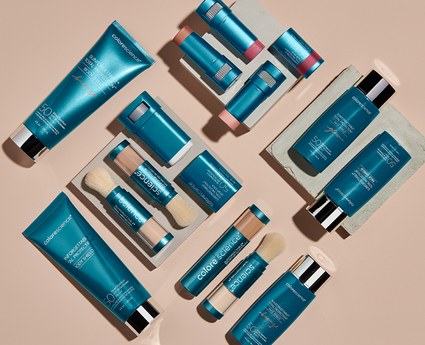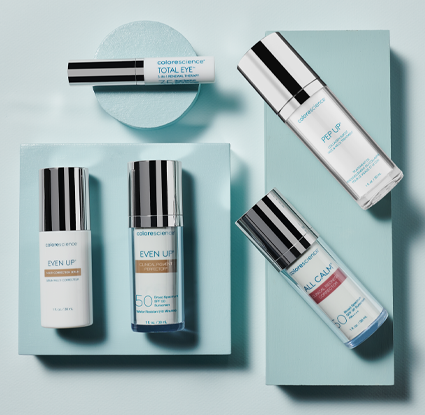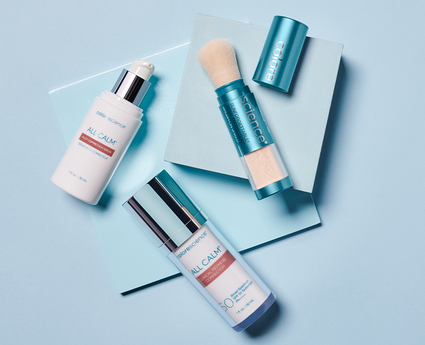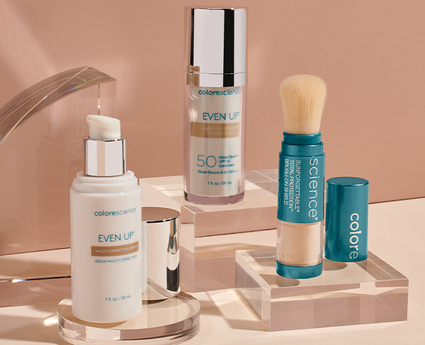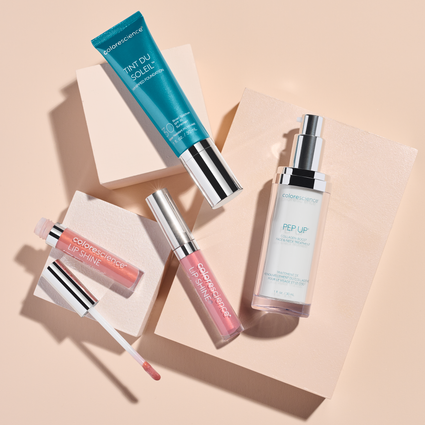Dry Patches on Skin: Causes & How to Treat It
Are you tired of dealing with dry patches on your skin? It can be frustrating if you have dry skin patches, whether it’s an ongoing problem or come on suddenly. Dryness can be itchy and irritating, and might even cause your skin to start to crack.
Fortunately, you don't have to suffer with patches of dry skin.
There are a variety of reasons why you may end up with dry skin patches. By identifying what the cause might be, you can better treat it and start the process of recovery. Not sure where to get started? We’re here to help.
Keep reading or use the links below to get to the bottom of those frustrating dry patches on your skin and find relief.
- How Do I Know If I Have Dry Skin?
- 6 Common Causes of Dry Skin
- How to Treat Dry Skin
- Tips for Preventing Dry Skin
How Do I Know If I Have Dry Skin?
There are several signs that could indicate that you have patches of dry skin, including:
- You may feel like your skin is a bit tight, particularly on the surfaces where you bend or extend your joints.
- You might notice your skin feels a bit like sandpaper. It may also look like it has a rough surface.
- Your skin might look a bit ashen. This happens when your skin begins to flake, which is common with dry skin.
- Some people describe dry skin as looking like a dry riverbed. It might look like there are a bunch of lines running along the surface of your skin.
- Certain portions of your skin may also change color. It might look brown, black, or even red. Keep in mind that this can also be a sign of sensitive skin.
- Eventually, your skin may become so dry that it starts to crack. When this happens, it may begin to bleed as well.
These are just a few of the most common signs of dry skin. Some people might only have one or two of these signs, while other people might have all of them. Keep in mind that the symptoms of dry skin can wax and wane, meaning that the symptoms can get better and worse with time.
6 Common Causes of Dry Skin

There are a handful of reasons why you might develop a dry patch of skin. Some of the most common causes include:
1. Skincare Products & Practices
If you aren't careful with how you take care of your skin, you could accidentally cause it to dry out. For example, if you expose yourself to harsh detergents and soaps, your skin could become increasingly dry. Some products that you might use to clean your clothes could strip the moisture from your skin, causing it to become dry.
In addition, certain soaps could cause your skin to dry out. Remember that soap is designed to remove grease and oil from your skin, but it can also remove too much oil, causing it to dry out.
Using overly hot water while washing your face or showering can also lead to dryness. This is especially true during colder months when it’s already usually drier outside.
2. Dehydration
Dehydration is also a common contributing factor. If you don’t drink enough water—especially over longer periods of time—your body will have to strip water from your skin to power its internal functions. As a result, your skin could start to dry out.
The easiest way to prevent this problem is to make sure you drink enough water during the day. Many people find it helpful to use large water containers that they can bring with them everywhere or even ones that have reminders for when to drink to keep up with how much water they need to consume.
3. Environmental Factors
Environmental factors could also cause your skin to dry out. For example, if you live in a location that is particularly windy. If you live in a region with especially cool weather, the cold can also contribute to dry patches on your skin. If you live in an environment that does not have a lot of humidity, your skin may struggle to hold on to moisture. Something to keep in mind during winter is that if you expose yourself to space heaters and fireplaces, your skin could start to get dehydrated.
4. Skin Conditions
There are certain skin conditions that could cause patches of dry skin to form. For example, you might be diagnosed with eczema, which is a common cause of dry, flaking, and cracking skin. Or, if you suffer from psoriasis, dry skin is a side effect you might struggle with due to the nature of the condition.
If you work with a dermatologist who can help you construct a treatment plan, you may be able to mitigate skin dryness associated with these conditions.
5. Natural Effects of Aging
As you age, your skin may start to dry out. For example, your skin may not produce as much oil when you get older, causing it to dry and crack.
Additionally, your skin may not retain as much water as it once did. However, if you make efforts to take care of your skin appropriately, you should be able to mitigate the effects of skin dryness.

6. Certain Medications
Certain medications can also lead to dry skin patches. For example, if you are taking medication for acne treatment, it could cause your skin to dry out. Or, if you take cholesterol medication or antihistamines, they can also cause your skin to dry out. To find out if this might be what’s causing the issue, you should check the side effects of any medications or supplements you’re taking.
It’s important to note that you typically want to discuss medication changes with your doctor before making any adjustments.
How to Treat Dry Skin
If you have dry patches of skin, there are generally a few routes you can take to improve or resolve the issue:
Skin Treatments
There are certain skin treatments that can help you get rid of dry patches on your skin. You may want to talk to your doctor about what products may be right for your skin type specifically.
Using moisturizers that can help you restore some of the lost moisture. In particular, you may want to look for products that have stearic acid or linoleic acid, which can help you not only moisturize but repair your skin. If you have sensitive skin, you need to be careful with your product choice, as you don't want to irritate your skin.
You might even be interested in products that contain ingredients such as niacinamide or bisabolol. Both of these options are known to help restore moisture. You may also want to explore a peptide serum, which can go a long way toward helping you treat dry skin.

Medications
There are certain medications that could be helpful as well. First, if you have been diagnosed with a chronic skin condition, your doctor may want to prescribe medication to address it. For example, people with severe eczema might want to use a steroid cream to help them tamp down inflammation.
There are also certain medications that have active ingredients, such as ceramides, urea, and glycerol, which can help you heal your skin. Everyone is different, so you may want to reach out to a professional who can help you customize your treatment plan to meet your needs.
Changes in Habits
Typically, dry skin responds to the right lifestyle changes. For example, something as easy as avoiding hot showers and baths could help your skin retain moisture.
This is why it’s so important to consider the most common causes of dry skin patches and whether they apply to you. If they do, you can try to stop doing them or follow some of the suggestions we mentioned to see if patches of dry skin start to improve.

Tips for Preventing Dry Skin
In addition to many of the treatment options above, there are several tips that can help you prevent dry skin from developing in the first place, including:
- Consume Hydrating Food and Drinks: Keeping yourself well-hydrated with your diet is one of the easiest things you can do to maintain moisture in your skin.
- Use Gentle Products: Try to use an allergen-free moisturizing soap or soap that has been specifically designed for people with sensitive skin. This can help prevent it from drying out. Try to stay away from laundry detergent that has a strong scent, and consider stopping your fabric softener. Many of these products, while they are designed to remove oil and stains from your clothes, can also dry out your skin.
- Use a Humidifier: Because living in a dry environment can cause your skin to dry out, you should try to increase the humidity of your home. You might want to consider installing a humidifier in your house, particularly in your bedroom. That way, your skin gets plenty of moisture when you sleep during the night.
- Always Use Sunscreen: Sun damage can contribute to dry patches. When you have a damaged skin barrier, it’s not always able to remain hydrated and healthy. Wearing sunscreen prevents sun damage and many formulas include hydrating ingredients that are good for your skin too.
Give a few of these tips a try so you can avoid uncomfortable dry patches on your skin as much as possible.
Keep Your Skin Hydrated & Healthy
If you’re able to hydrate aging skin appropriately, you can reduce your chances of developing dry skin patches as you get older. Make sure you develop a comprehensive skincare routine that addresses all of these issues, so your skin stays healthy and as youthful-looking as possible.
If you’re having issues with dry skin, you may want to consider Colorescience skin treatments. We can help you keep your skin hydrated and glowing, all while using safe ingredients.

